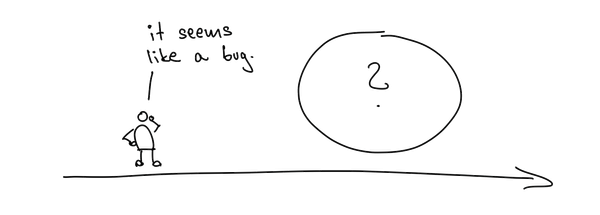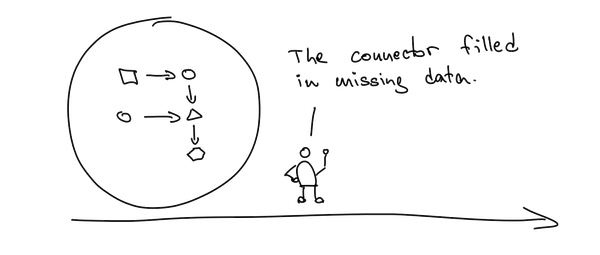Exploring my writing: Hedging
As I've been doubling down on my writing, I started to observe situations when I hedge. Hedging should be avoided, the writing advice goes, but I've found that it depends.
Many writers cushion their prose with wads of fluff that imply that they are not willing to stand behind what they are saying.
— Steven Pinker (from The Sense of Style, p. 43)
In one situation, a colleague asked about our website's unexpected behavior. I quickly investigated the issue and discovered that the most probable cause was a bug in the backend. So I replied: "It seems this is a bug in the backend." Such hedging, I realized, allows me to quickly communicate uncertainty in the case of the unknown. It's a shortcut I find acceptable.

However, there are other situations. Once, I wrote: "It seems that the data connector is working." But this situation was different from the one above: I wrote the sentence after investigating the data connector, not before. I knew the connector, I knew the facts, yet I presented the outcome with hedging.
I can do better. Instead of cushion the uncertain generic conclusion with a safety net, I can organize the facts in a logical flow. I can write: "The connector filled in the missing data for October. To declare the connector working, we need to check the connector's real-time ingestion." In this situation, the lack of hedging forces me to clarify my thoughts, which, in turn, helps others to understand the situation, the known, better.

To write well, you need first to know what you are talking about. Thus, you have to do your research. ... Then you have to be able to organize your argument, at the level of the word, the sentence, the paragraph and the essay itself. If you can do that, you can organize your thoughts and, in consequence, your brain. Then you can help organize other brains, and other structures.
Jordan Peterson (from Quora)
- ← Previous post: Connecting to AWS API Gateway with HTTP
- → Next post: Exploring my writing: The subjects of sentences
This blog is written by Marcel Krcah, an independent consultant for product-oriented software engineering. If you like what you read, sign up for my newsletter